Unit 5 Education Lesson 1 Enlightening a Mind (Grammar)课件(共27张PPT)北师大版(2019)选择性必修第二册
文档属性
| 名称 | Unit 5 Education Lesson 1 Enlightening a Mind (Grammar)课件(共27张PPT)北师大版(2019)选择性必修第二册 | 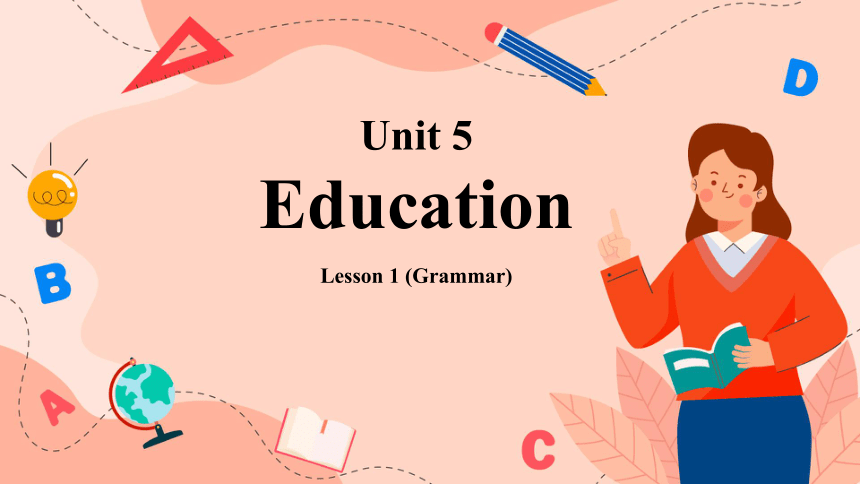 | |
| 格式 | pptx | ||
| 文件大小 | 22.7MB | ||
| 资源类型 | 教案 | ||
| 版本资源 | 北师大版(2019) | ||
| 科目 | 英语 | ||
| 更新时间 | 2025-08-01 11:08:28 | ||
图片预览

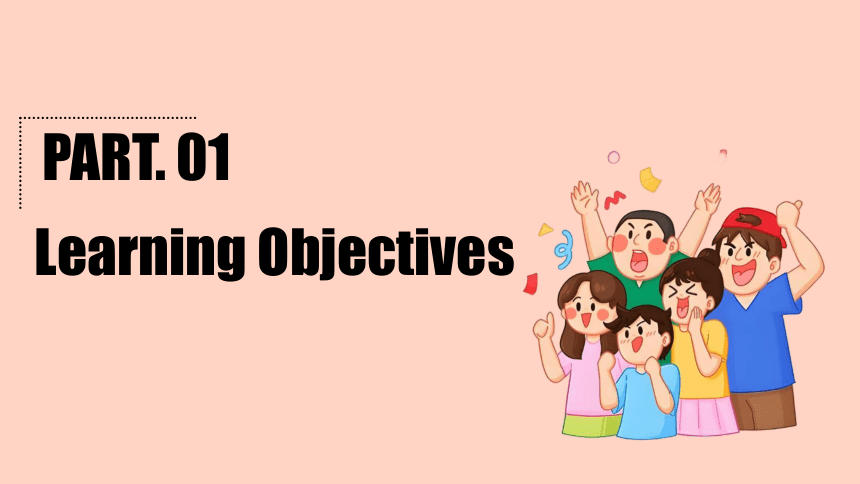
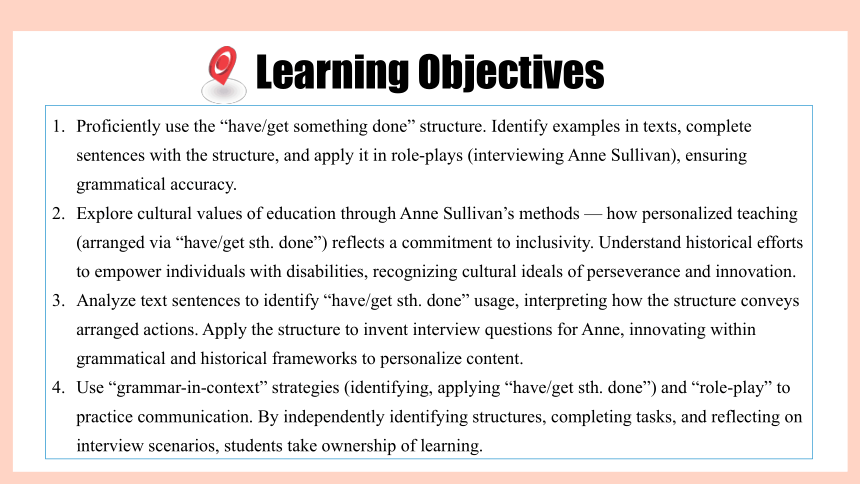
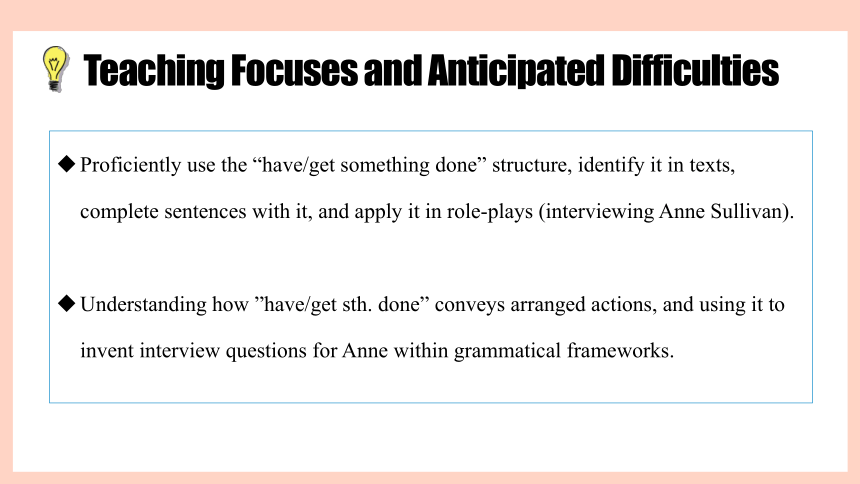
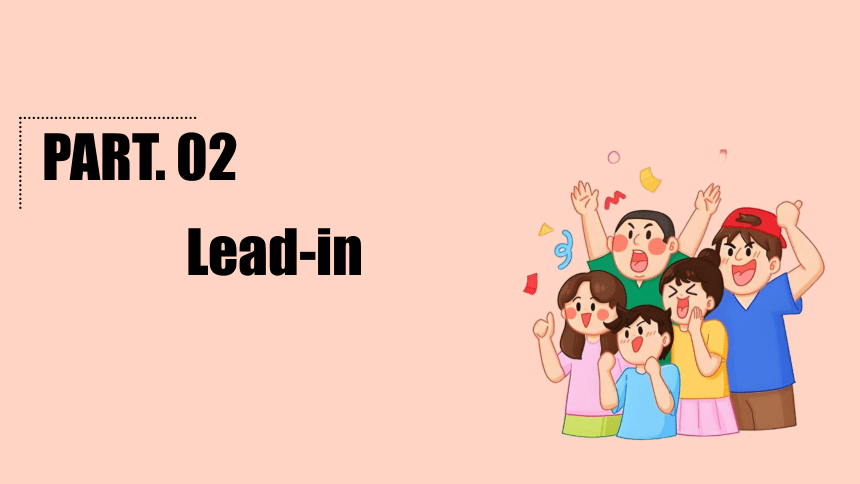
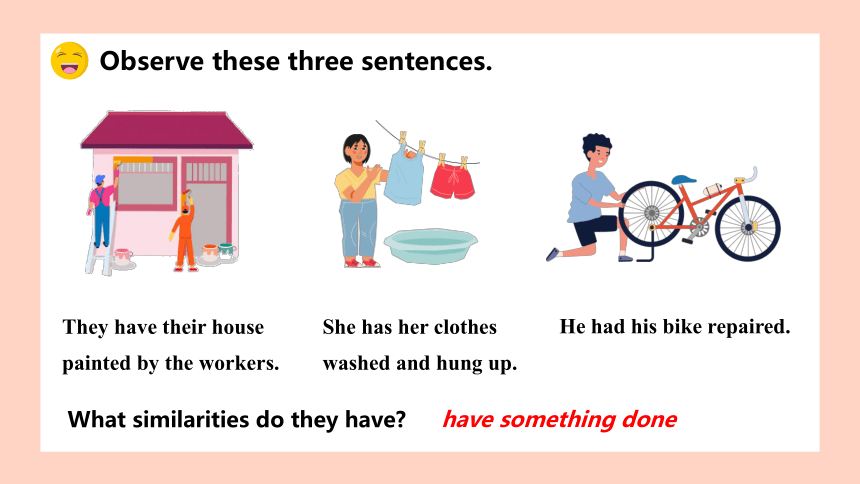
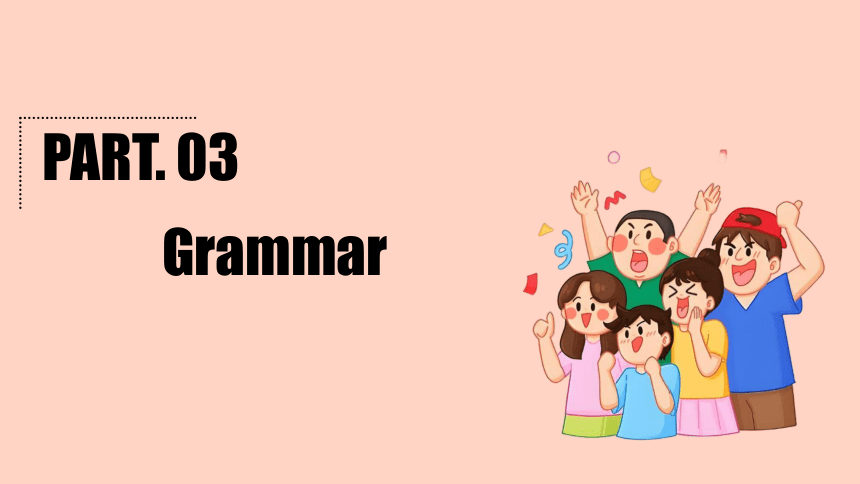
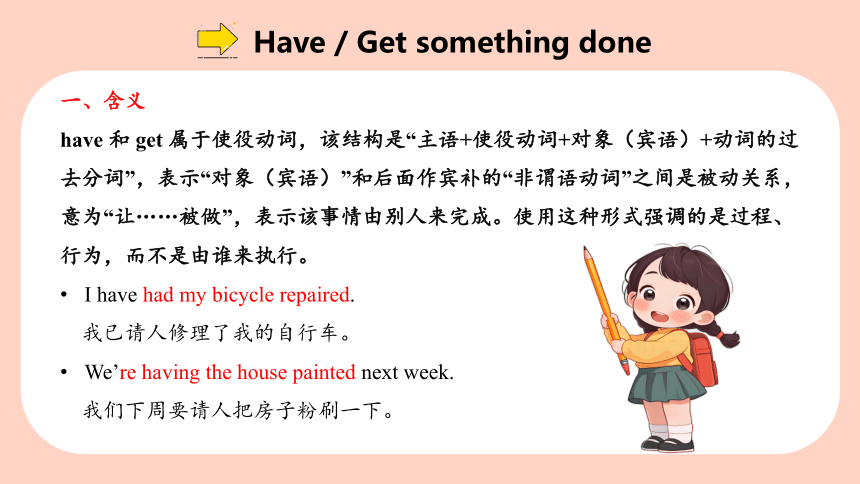
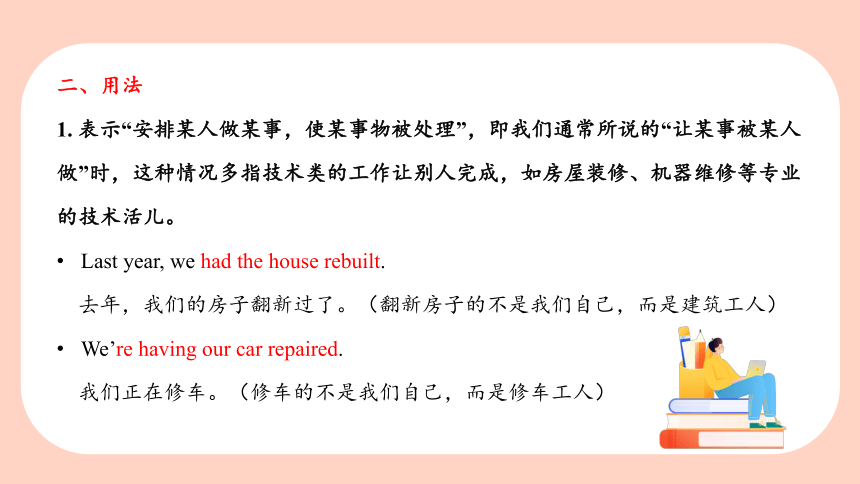
文档简介
(共27张PPT)
Unit 5
Education
Lesson 1 (Grammar)
Learning Objectives
PART. 01
Understand the daily study and life of British middle school students by watching videos. Based on your own daily study and life, compare the study and life in Chinese and British schools, and find out the similarities and differences between the two. Talk about your first impression of high school life, and have a preliminary perception of the study and life in the senior high school stage.
Learning Objectives
Proficiently use the “have/get something done” structure. Identify examples in texts, complete sentences with the structure, and apply it in role-plays (interviewing Anne Sullivan), ensuring grammatical accuracy.
Explore cultural values of education through Anne Sullivan’s methods — how personalized teaching (arranged via “have/get sth. done”) reflects a commitment to inclusivity. Understand historical efforts to empower individuals with disabilities, recognizing cultural ideals of perseverance and innovation.
Analyze text sentences to identify “have/get sth. done” usage, interpreting how the structure conveys arranged actions. Apply the structure to invent interview questions for Anne, innovating within grammatical and historical frameworks to personalize content.
Use “grammar-in-context” strategies (identifying, applying “have/get sth. done”) and “role-play” to practice communication. By independently identifying structures, completing tasks, and reflecting on interview scenarios, students take ownership of learning.
Understand the daily study and life of British middle school students by watching videos. Based on your own daily study and life, compare the study and life in Chinese and British schools, and find out the similarities and differences between the two. Talk about your first impression of high school life, and have a preliminary perception of the study and life in the senior high school stage.
Teaching Focuses and Anticipated Difficulties
Proficiently use the “have/get something done” structure, identify it in texts, complete sentences with it, and apply it in role-plays (interviewing Anne Sullivan).
Understanding how ”have/get sth. done” conveys arranged actions, and using it to invent interview questions for Anne within grammatical frameworks.
Lead-in
PART. 02
Observe these three sentences.
They have their house painted by the workers.
She has her clothes washed and hung up.
He had his bike repaired.
What similarities do they have
have something done
Grammar
PART. 03
Have / Get something done
一、含义
have 和 get 属于使役动词,该结构是“主语+使役动词+对象(宾语)+动词的过去分词”,表示“对象(宾语)”和后面作宾补的“非谓语动词”之间是被动关系,意为“让……被做”,表示该事情由别人来完成。使用这种形式强调的是过程、行为,而不是由谁来执行。
I have had my bicycle repaired.
我已请人修理了我的自行车。
We’re having the house painted next week.
我们下周要请人把房子粉刷一下。
二、用法
1. 表示“安排某人做某事,使某事物被处理”,即我们通常所说的“让某事被某人做”时,这种情况多指技术类的工作让别人完成,如房屋装修、机器维修等专业的技术活儿。
Last year, we had the house rebuilt.
去年,我们的房子翻新过了。(翻新房子的不是我们自己,而是建筑工人)
We’re having our car repaired.
我们正在修车。(修车的不是我们自己,而是修车工人)
2. 表示“遭遇到某事”,通常是令人不快的事件;常指“某人偷了、弄坏或破坏了属于你的东西”。
She’s had her wallet taken.
她的钱包被偷了。
They have had their request refused.
他们的要求被拒绝了。
If she’s lucky, she’ll have her business plan accepted.
如果她幸运的话,她的商业计划会被接受。
3. 表示“处于某种状态”时,也可以将have sth done中的done改为形容词或介词短语,作宾语补足语。
I had my eyes half-closed. 我半闭着眼睛。
(形容词 half-closed作宾语补足语,意义相当于with my eyes half-closed)
The medicine will soon have you on your feet again. 这药会让你很快恢复健康的。
(介词短语 on your feet作宾语补足语,表示“回到健康状态”)
注意:get something done不仅与have something done形式相近,它同样可以表示 have something done的三种含义。
Go and get your hair cut! 你快去理发去!
She got her fingers caught in the door. 她的手指给门夹了。
4. 当更注意行为的结果而不是行为本身时,多用 have。
I’ll have the house cleaned by the time you get home.
你到家时我会把房子打扫干净的。
Sue had her fingers trapped in the bike chain for half an hour.
苏的手指被夹在自行车链条上半个小时。
5. 想要表示“不允许某人或某事发生什么情况”时,用won’t(或will not)have,不用 get。
I won’t have him spoken to like that.
我不想让他那样说话。
三、have sth done、have sb/sth do 和 have sb/sth doing 的比较与区分
have sb/sth do 与 have sb/sth doing 两者都是宾语发出的主动动作,前者指“使某人/某物做某事(指一次性的具体的动作)”;后者指“使某人/某物一直处于某种状态,常接一段时间作状语。have sth done 这一结构中的宾语与动词是被动关系。
1. have sth done
“have+sth(宾语)十过去分词(宾语补足语)”意为“让/叫/使/请别人做某事”,宾语sth 后面用过去分词作宾语补足语,说明 sth 与过去分词表示的动作之间是被动关系。
We had the machine mended just now. 我们刚才请人把机器修好了。
2. have sb/sth do
“have+sb/sth(宾语)+do(宾语补足语)”意为“让/叫/使某人/某物做某事”。此结构中的have是使役动词,sb/sth作宾语,其后的do是省去to 的动词不定式作宾语补足语。
The boss often has them work for 14 hours a day.
老板经常要他们一天工作14 个小时。
Don’t forget to have Mr Brown come to our party.
别忘了让布朗先生来参加我们的晚会。
3. have sb/ sth doing
“have+sb/sth(宾语)十现在分词(宾语补足语)”意为“叫/让/使某人做某事或让某种情况发生”,宾语 sb/sth后面用现在分词作宾语补足语,表示宾语与现在分词表示的动作之间为主动关系,且动作正在进行。
Don’t have the baby crying! 不要让婴儿啼哭!
Don’t have the dog barking much, Li Lin.
李林,别让狗狂吠不停。
You’d better have your car running slowly.
你最好把车子开慢点。
Find a sentence or part of a sentence in the text which uses have / get something done and means the following:
1. She could not do anything for herself.
_____________________________________________________
2. A great teacher was suggested to Helen’s parents.
_____________________________________________________
3. A new world of language opened up to her.
_____________________________________________________
She needed to have everything done for her.
Helen’s parents got a superb teacher recommended to them.
She got the world of words opened up to her.
Complete the sentences using have / get something done and the cues in the brackets.
1. We’ re going to (a video of the wedding / make) have a video of the wedding made.
2. I don’t know what’s wrong with my tyres. I’ll (them / check) _____________________.
3. I’ll (the washing machine / repair) _____________________________ soon.
have them checked
have the washing machine repaired
4. Many years ago Pauline (portrait / paint) _______________________ by a well-known painter.
5. (you ever / voice / record) ___________________________________
6. (you / face / make up) ______________________________ with face paint when you were a kid
Complete the sentences using have / get something done and the cues in the brackets.
had a portrait painted
Have you ever had your voice recorded
Did you have your face made up
Pair Work Write down questions that you would want to ask Anne Sullivan. Then act out a role-play of the interview between you and Anne.
What kind of person do you think you are
What special experience did you have that helped you relate to Helen’s difficulties
How did you teach Helen at the very first time
What teaching processes did Helen and you experience
Did you think it was difficult
Were there any meaningful stories you would like to share with us during your teaching process
Suggested answer
Exercise
PART. 04
Why not get your shoes _________(mend) at the repair shop They’re worn out.
The teacher has the students ________(clean) the classroom after school.
She ______ (have) her voice _________(record) for the radio show yesterday afternoon.
By next Friday, they _________(have) the project ________(finish).
Get your clothes ________(wash) at that new laundromat. It’s cheap!
We ____________(not have) the walls ________(paint) yet. Let’s set a date.
We can’t have the machine __________(run) without checking it first.
Exercise: 用所给词的适当形式填空
mended
clean
had
recorded
will have
finished
washed
haven’t had
painted
running
They plan to get the garden _________(decorate) before summer.
Let’s have the children ________(plant) trees in the park this weekend.
Last Monday, on his way to an important job interview, James _______(have) his laptop ________(steal) from his backpack in the crowded subway, which completely ruined his plan to present the project report.
During the long - term camping trip in the mountains, the team leader warned everyone, “Don’t have the campfire _________(burn) all night. It’s dangerous and will waste too much firewood.”
Exercise: 用所给词的适当形式填空
plant
stolen
burning
had
decorated
Summary
PART. 05
添加标题
ADD THE TITLE HERE
Lesson 1 (Grammar)
用法
have / get something done
have sth done、have sb/sth do 和 have sb/sth doing 的比较与区分
定义
Homework
PART. 06
Summarise what we have learnt in this lesson;
Prepare for the next lesson.
Homework
See you next class!
Unit 5
Education
Lesson 1 (Grammar)
Learning Objectives
PART. 01
Understand the daily study and life of British middle school students by watching videos. Based on your own daily study and life, compare the study and life in Chinese and British schools, and find out the similarities and differences between the two. Talk about your first impression of high school life, and have a preliminary perception of the study and life in the senior high school stage.
Learning Objectives
Proficiently use the “have/get something done” structure. Identify examples in texts, complete sentences with the structure, and apply it in role-plays (interviewing Anne Sullivan), ensuring grammatical accuracy.
Explore cultural values of education through Anne Sullivan’s methods — how personalized teaching (arranged via “have/get sth. done”) reflects a commitment to inclusivity. Understand historical efforts to empower individuals with disabilities, recognizing cultural ideals of perseverance and innovation.
Analyze text sentences to identify “have/get sth. done” usage, interpreting how the structure conveys arranged actions. Apply the structure to invent interview questions for Anne, innovating within grammatical and historical frameworks to personalize content.
Use “grammar-in-context” strategies (identifying, applying “have/get sth. done”) and “role-play” to practice communication. By independently identifying structures, completing tasks, and reflecting on interview scenarios, students take ownership of learning.
Understand the daily study and life of British middle school students by watching videos. Based on your own daily study and life, compare the study and life in Chinese and British schools, and find out the similarities and differences between the two. Talk about your first impression of high school life, and have a preliminary perception of the study and life in the senior high school stage.
Teaching Focuses and Anticipated Difficulties
Proficiently use the “have/get something done” structure, identify it in texts, complete sentences with it, and apply it in role-plays (interviewing Anne Sullivan).
Understanding how ”have/get sth. done” conveys arranged actions, and using it to invent interview questions for Anne within grammatical frameworks.
Lead-in
PART. 02
Observe these three sentences.
They have their house painted by the workers.
She has her clothes washed and hung up.
He had his bike repaired.
What similarities do they have
have something done
Grammar
PART. 03
Have / Get something done
一、含义
have 和 get 属于使役动词,该结构是“主语+使役动词+对象(宾语)+动词的过去分词”,表示“对象(宾语)”和后面作宾补的“非谓语动词”之间是被动关系,意为“让……被做”,表示该事情由别人来完成。使用这种形式强调的是过程、行为,而不是由谁来执行。
I have had my bicycle repaired.
我已请人修理了我的自行车。
We’re having the house painted next week.
我们下周要请人把房子粉刷一下。
二、用法
1. 表示“安排某人做某事,使某事物被处理”,即我们通常所说的“让某事被某人做”时,这种情况多指技术类的工作让别人完成,如房屋装修、机器维修等专业的技术活儿。
Last year, we had the house rebuilt.
去年,我们的房子翻新过了。(翻新房子的不是我们自己,而是建筑工人)
We’re having our car repaired.
我们正在修车。(修车的不是我们自己,而是修车工人)
2. 表示“遭遇到某事”,通常是令人不快的事件;常指“某人偷了、弄坏或破坏了属于你的东西”。
She’s had her wallet taken.
她的钱包被偷了。
They have had their request refused.
他们的要求被拒绝了。
If she’s lucky, she’ll have her business plan accepted.
如果她幸运的话,她的商业计划会被接受。
3. 表示“处于某种状态”时,也可以将have sth done中的done改为形容词或介词短语,作宾语补足语。
I had my eyes half-closed. 我半闭着眼睛。
(形容词 half-closed作宾语补足语,意义相当于with my eyes half-closed)
The medicine will soon have you on your feet again. 这药会让你很快恢复健康的。
(介词短语 on your feet作宾语补足语,表示“回到健康状态”)
注意:get something done不仅与have something done形式相近,它同样可以表示 have something done的三种含义。
Go and get your hair cut! 你快去理发去!
She got her fingers caught in the door. 她的手指给门夹了。
4. 当更注意行为的结果而不是行为本身时,多用 have。
I’ll have the house cleaned by the time you get home.
你到家时我会把房子打扫干净的。
Sue had her fingers trapped in the bike chain for half an hour.
苏的手指被夹在自行车链条上半个小时。
5. 想要表示“不允许某人或某事发生什么情况”时,用won’t(或will not)have,不用 get。
I won’t have him spoken to like that.
我不想让他那样说话。
三、have sth done、have sb/sth do 和 have sb/sth doing 的比较与区分
have sb/sth do 与 have sb/sth doing 两者都是宾语发出的主动动作,前者指“使某人/某物做某事(指一次性的具体的动作)”;后者指“使某人/某物一直处于某种状态,常接一段时间作状语。have sth done 这一结构中的宾语与动词是被动关系。
1. have sth done
“have+sth(宾语)十过去分词(宾语补足语)”意为“让/叫/使/请别人做某事”,宾语sth 后面用过去分词作宾语补足语,说明 sth 与过去分词表示的动作之间是被动关系。
We had the machine mended just now. 我们刚才请人把机器修好了。
2. have sb/sth do
“have+sb/sth(宾语)+do(宾语补足语)”意为“让/叫/使某人/某物做某事”。此结构中的have是使役动词,sb/sth作宾语,其后的do是省去to 的动词不定式作宾语补足语。
The boss often has them work for 14 hours a day.
老板经常要他们一天工作14 个小时。
Don’t forget to have Mr Brown come to our party.
别忘了让布朗先生来参加我们的晚会。
3. have sb/ sth doing
“have+sb/sth(宾语)十现在分词(宾语补足语)”意为“叫/让/使某人做某事或让某种情况发生”,宾语 sb/sth后面用现在分词作宾语补足语,表示宾语与现在分词表示的动作之间为主动关系,且动作正在进行。
Don’t have the baby crying! 不要让婴儿啼哭!
Don’t have the dog barking much, Li Lin.
李林,别让狗狂吠不停。
You’d better have your car running slowly.
你最好把车子开慢点。
Find a sentence or part of a sentence in the text which uses have / get something done and means the following:
1. She could not do anything for herself.
_____________________________________________________
2. A great teacher was suggested to Helen’s parents.
_____________________________________________________
3. A new world of language opened up to her.
_____________________________________________________
She needed to have everything done for her.
Helen’s parents got a superb teacher recommended to them.
She got the world of words opened up to her.
Complete the sentences using have / get something done and the cues in the brackets.
1. We’ re going to (a video of the wedding / make) have a video of the wedding made.
2. I don’t know what’s wrong with my tyres. I’ll (them / check) _____________________.
3. I’ll (the washing machine / repair) _____________________________ soon.
have them checked
have the washing machine repaired
4. Many years ago Pauline (portrait / paint) _______________________ by a well-known painter.
5. (you ever / voice / record) ___________________________________
6. (you / face / make up) ______________________________ with face paint when you were a kid
Complete the sentences using have / get something done and the cues in the brackets.
had a portrait painted
Have you ever had your voice recorded
Did you have your face made up
Pair Work Write down questions that you would want to ask Anne Sullivan. Then act out a role-play of the interview between you and Anne.
What kind of person do you think you are
What special experience did you have that helped you relate to Helen’s difficulties
How did you teach Helen at the very first time
What teaching processes did Helen and you experience
Did you think it was difficult
Were there any meaningful stories you would like to share with us during your teaching process
Suggested answer
Exercise
PART. 04
Why not get your shoes _________(mend) at the repair shop They’re worn out.
The teacher has the students ________(clean) the classroom after school.
She ______ (have) her voice _________(record) for the radio show yesterday afternoon.
By next Friday, they _________(have) the project ________(finish).
Get your clothes ________(wash) at that new laundromat. It’s cheap!
We ____________(not have) the walls ________(paint) yet. Let’s set a date.
We can’t have the machine __________(run) without checking it first.
Exercise: 用所给词的适当形式填空
mended
clean
had
recorded
will have
finished
washed
haven’t had
painted
running
They plan to get the garden _________(decorate) before summer.
Let’s have the children ________(plant) trees in the park this weekend.
Last Monday, on his way to an important job interview, James _______(have) his laptop ________(steal) from his backpack in the crowded subway, which completely ruined his plan to present the project report.
During the long - term camping trip in the mountains, the team leader warned everyone, “Don’t have the campfire _________(burn) all night. It’s dangerous and will waste too much firewood.”
Exercise: 用所给词的适当形式填空
plant
stolen
burning
had
decorated
Summary
PART. 05
添加标题
ADD THE TITLE HERE
Lesson 1 (Grammar)
用法
have / get something done
have sth done、have sb/sth do 和 have sb/sth doing 的比较与区分
定义
Homework
PART. 06
Summarise what we have learnt in this lesson;
Prepare for the next lesson.
Homework
See you next class!
同课章节目录
- Unit 4 Humour
- Lesson 1 What’s So Funny?
- Lesson 2 Why Do We Need Humour?
- Lesson 3 My Favourite Comedian
- Unit 5 Education
- Lesson 1 Enlightening a Mind
- Lesson 2 The Objectives of Education
- Lesson 3 Understanding
- Unit 6 The Media
- Lesson 1 From Page to Screen
- Lesson 2 Questions about Media
- Lesson 3 The Advertising Game
